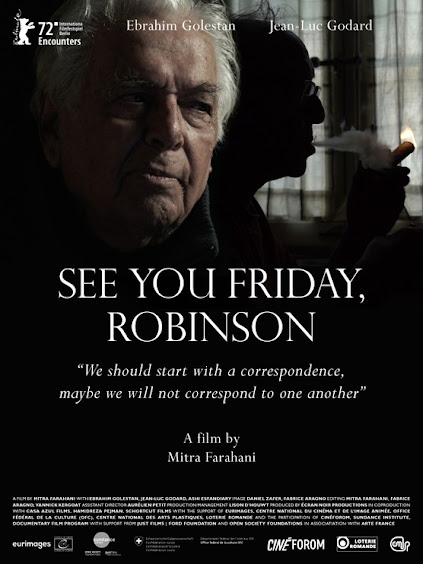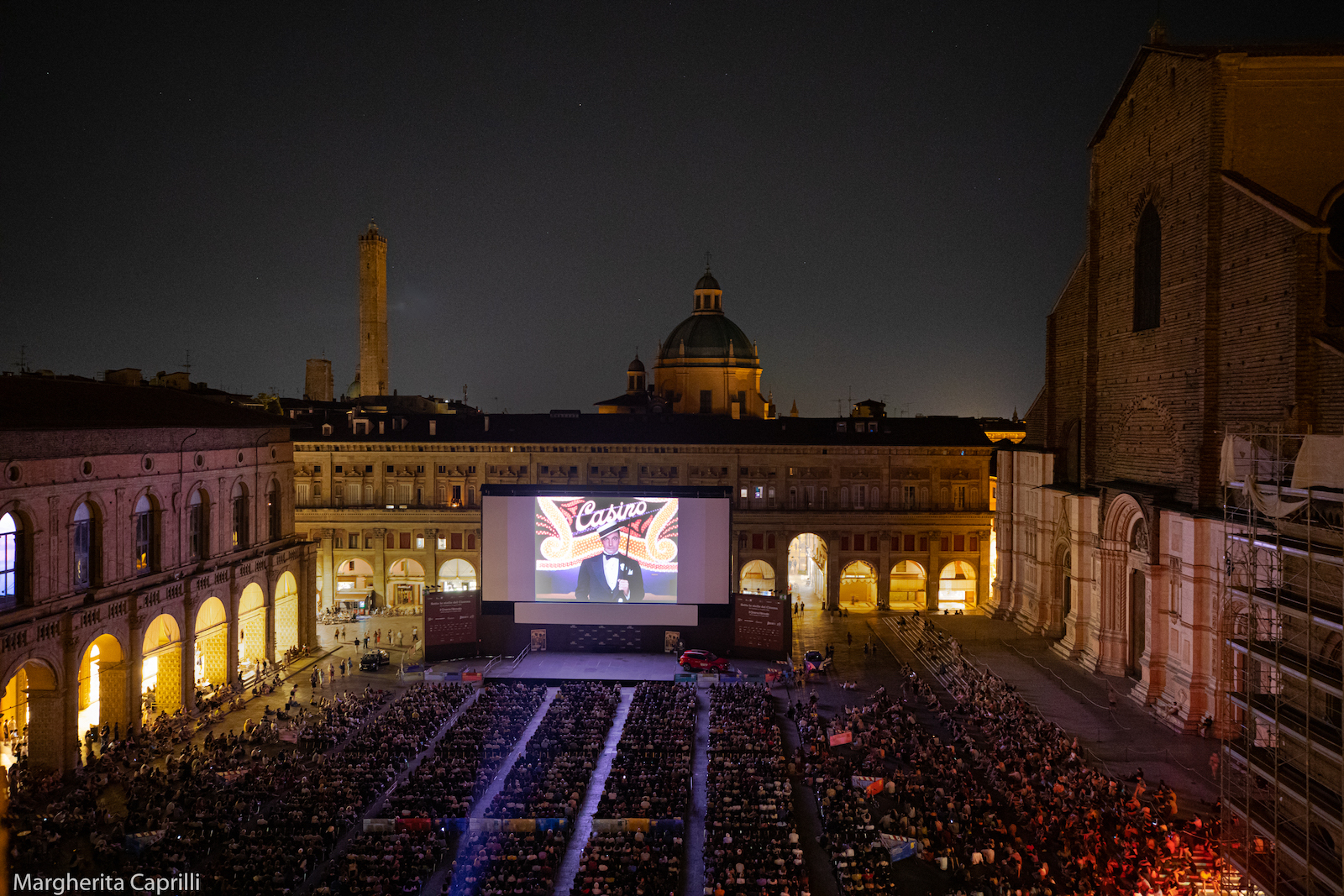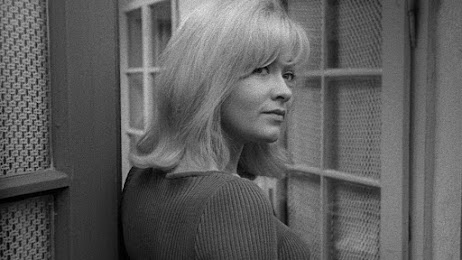Saturday 24 September 2022
Monday 5 September 2022
Focus on Filmfarsi in Paris (September 2022)
 |
| Cry of Midnight AKA Midnight Terror (1962) |
A listing of the Iranian films which will be screened at L'Étrange Festival in Paris, including my documentary Filmfarsi (2019). All screenings at Forum des images, September 2022.
Filmfarsi (2019)
Sep 9, 17:45 (introduction by Ehsan) | Sep 18, 18:30
“As a long standing admirer of the New Iranian Cinema, I often wondered about its popular predecessor. Ehsan Khoshbakht has finally opened up this story. His essayistic, meditative and cinephile analysis celebrates an unashamedly exploitative genre, steeped in sex and violence; Filmfarsi very usefully locates this crazy cinema within the Iranian popular and political culture of its time, and also allows it to find a place in the wider context of World Cinema.” — Laura Mulvey
Szyfry (Wojciech Has, 1966)
Playing at London's Closeup Cinema on October 30, 2022. – EK
Championed for his intricate narratives and hypnotic imagery by people like Grateful Dead's Jerry Garcia, Luis Buñuel and Martin Scorsese, Wojciech Has uses a historical frame only to bend the notions of time and space. The result, Szyfry (meaning the codes), is one of the most complex Polish films about the moral dilemmas of Second World War.
Made right after his international breakthrough, The Saragossa Manuscript, and using the same star (Zbigniew Cybulski, in one of his final roles, before dying in an accident a year later), Szyfry is about a Second World War veteran returning to Warsaw from his long London exile to meet the wife and son he has left behind. The son (played by Cybulski), a former member of the resistance, open his father's eyes to the fate of the fourth member of their family, his disappeared brother, and the inconvenient truth that he might have been a Nazi collaborator. Featuring some of Has's most staggering dream/nightmare sequences, this rarely seen gem is one of the essential films of Polish cinema of the 1960s.
Tuesday 23 August 2022
See You Friday, Robinson (Mitra Farahani, 2022)
 |
RIP Ebrahim Golestan (1922 – 2023)
A long-distance dialogue between Ebrahim Golestan, a giant of Iranian cinema and literature (now only a few months shy of his 100th birthday) and Swiss-French filmmaker Jean-Luc Godard forms the basis of this latest film by Mitra Farahani. Among the most gifted documentarians from Iran, Farahani mediates between two seemingly irreconcilable worlds to create a unique epistolary work. Its elegant, hybrid style takes us from encounters with shadows – the first time we see each of these artists – to the inner lives of flesh and blood individuals; vulnerable, pained, caring, endlessly searching.
Monday 22 August 2022
One Way Street (Hugo Fregonese, 1950)
 |
One Way Street, part of the Hugo Fregonese tribute, plays at MoMA on September 1, 18:30. It's a fine 35mm print, previously screened in Bologna in June 2022. – EK
After leaving Britain in bitter resentment, James Mason appeared in Hugo Fregonese’s Hollywood debut, somewhat appropriately, a film about life on the run. Mason plays Dr Frank Matson, a shady physician who takes off with a bag full of stolen money and the girlfriend of a gang leader, hiding out with her in Mexico. But fate knocks loudly on the door, echoing one of Fregonese’s major preoccupations: the encounter with death. “For no matter the tears that may be wept, the appointment will be kept,” the film’s opening title card bluntly announces.
Saturday 20 August 2022
Doroshkechi (Nosrat Karimi, 1971)
Wednesday 27 July 2022
Hugo Fregonese: Man on the Run (MoMA retrospective, September 2022)
 |
| Blowing Wild |
Perhaps history’s most restless filmmaker, Hugo Fregonese directed his first films in his native Argentina in the 1940s and then embarked on a globe-trotting career that took him to Hollywood, London, Paris, Rome, Munich, and eventually back to South America, all the while exploring themes of claustrophobia, entrapment, and imprisonment. This program, originally organized with Bologna’s Il Cinema Ritrovato festival of archival film, includes a new restoration of Fregonese’s boldly stylized Western Apache Drums (1951) and a new 35mm print of Fregonese’s masterpiece Black Tuesday (1954), a strikingly harsh and violent gangster film featuring Edward G. Robinson in his last thoroughly villainous role and spectacular noir cinematography by Stanley Cortez (Night of the Hunter).
Organized by Dave Kehr, Curator, Department of Film, The Museum of Modern Art, and Ehsan Khoshbakht, Co-Director, Il Cinema Ritrovato.
The series runs from September 1 to 15 in New York City. More info here.
Tuesday 12 July 2022
Il Cinema Ritrovato 2022: Favourites & Discoveries
 |
| Singin' in the Rain in Piazza Maggiore, July 1 |
When they unscrewed the heavy and majestic La Nonna (our carbon arc projector) from the pedestal in Piazzetta Pasolini and the ice cream vendor packed his stuff and went home it was clear that Il Cinema Ritrovato XXXVI was over. We had a ball. More than 400 films were shown during 8 and a half days. Cinema could be found in every corner of the city.
After the last year's round-up – seen and read by many – I asked colleagues, curators, film historians, silent film accompanists, scholars and the attendees to pick the title of the two films from the festival, one as their favourite film and the other of their major discovery at this year's edition. You can read them below.
The magic of Bologna lies in the fact that while we showed films by the masters we love (Hitchcock, Lang, Ophuls, Melville), the filmmakers that are championed in this poll are Niskanen, Muratova, Fregonese, Shahid Saless, Rossi, and Ovanessian. Rewrite the film histories now!
See you next year!
THIS BLOG POST IS BEING REGULARLY UPDATED. THE NEW ENTRIES WILL BE MARKED BY [new]
* * *
Saturday 21 May 2022
A View into Yugoslav Cinema by Mina Radović
 |
| Man Is Not a Bird |
During its XXXVI edition, Il Cinema Ritrovato will present a section dedicated to Yugoslav cinema. The curator of the programme, Mina Radović, has written an introductory article, discussing the ideas behind the selection, as well as the significance of each selected title. All the films will play at the Jolly cinema of Bologna between June 25 and July 2, 2022.
“Tell the Truth!” A View into Yugoslav Cinema, 1955-1969
By Mina Radović
Yugoslav cinema represents a rich, multifaceted, and for many film connoisseurs, untapped resource of film heritage. One of the most diverse states in twentieth century Europe, Yugoslavia was originally founded in 1918 in the aftermath of the First World War and the collapse of several empires as the Kingdom of the Serbs, Croats, and Slovenes. The country was governed as a constitutional monarchy governed by King Aleksandar Karađorđević and in 1929 the country changed its name to Yugoslavia – ‘the land of South Slavs’.
A hub of film culture, pedagogy, and production, the film industry was nationalised after the Second World War and a sophisticated studio system quickly emerged. The new government led by Josip Broz Tito turned Yugoslavia into a socialist country with its own brand of self-management and a form of diplomacy which connected East, West, and the ‘Non-Aligned’ world.
The post-war years saw the rise of formidable new artists who examined, mediated, and challenged contemporary Yugoslav reality, breaking social taboos, and forging new means of cinematic expression. Their work is often diametrically different, but they are connected by an innovative, experimental, and altogether refreshing spirit to see the world anew. The retrospective will present two decades of cinema, moving from the Classical Cinema of the 1950s to the New Yugoslav Film of the 1960s and incorporates a range of feature and short, fiction, documentary, and experimental films by master filmmakers of the era.
Wednesday 18 May 2022
Iranian Films at Il Cinema Ritrovato 2022
.jpg) |
| The Carriage Driver (Nosrat Karimi, 1971), shot by Houshang Baharlou (Chess of the Wind) |
The forthcoming edition of Il Cinema Ritrovato (June 25-July 3, 2022) doesn't include an individual strand for Iranian cinema, however, it'll nonetheless feature at least five dazzling Iranian films, made between 1961 and 2022, shown across 3 different strands.
The documentary section will see the Italian premiere of À vendredi, Robinson (Mitra Farahani, 2022), a dialogue between Ebrahim Golestan, a giant of Iranian cinema and literature (now only a few months shy of his 100th birthday) and Swiss-French filmmaker Jean-Luc Godard. This is a truly beautiful work and should prepare you for what comes next.
A Fire (Yek Atash) by Ebrahim Golestan was premiered at Venice Film Festival in 1961. We screened it in 2016 when a retrospective was dedicated to Golestan's cinema of poetry and politics. Now we have updated the faded 35mm print previously shown with a 4K restoration of the film, presented for the first time in its original Persian voice-over, spoken by a famous voice artist, Asadollah Peyman. (The 2016 screening was from an English-dubbed version.)


.jpg)
.jpg)
.jpg)